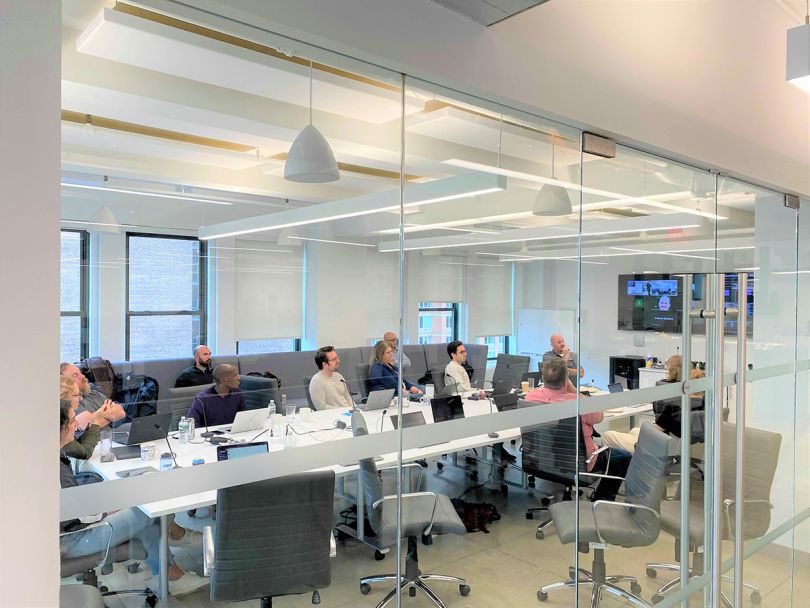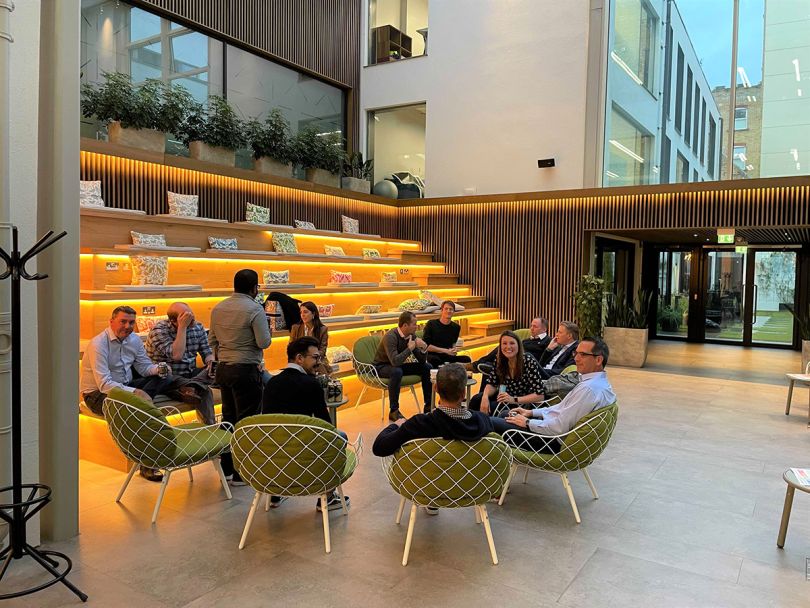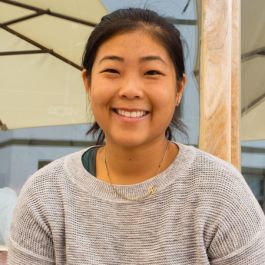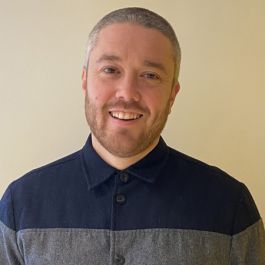Mina Weldon hasn’t always felt seen and heard in the workplace.
Before joining Prove as a business data analyst earlier this year, she was an engineer in the oil and gas industry and experienced feelings of isolation and anonymity there that she believes are all too common for employees with marginalized identities.
“I was a woman in the oil and gas industry, and an Asian woman at that,” she said, reflecting on her decision to leave behind that career path for another. Weldon grew up in Texas, where she’d studied chemical engineering at Texas A&M University. For one role as a pipeline process engineer, she relocated to Covington, Louisiana, becoming involved with Asian and women’s employee network groups. But, at these meetings, she struggled to express herself fully.
“The women’s employee network was predominantly white women, and the Asian employee network was predominantly Asian men,” Weldon said. “I didn’t feel represented, even though those are the two groups that I belonged to. The topic of conversation was very skewed toward the dominant gender and race in those groups.” And despite ample discussion of diversity and inclusion, the company was short on tangible progress. “Initiatives were usually marketing pitches to get new recruits,” she said. “Once you actually stepped into that space, you saw a certain lack of execution.”
Given this experience, Weldon said working at Prove has been refreshing, especially in terms of efforts around diversity, inclusion and belonging. Since Weldon joined, she’s found employees are individually empowered to oversee the initiatives they want to see at work. “There’s more give-and-take in terms of experience and opinions,” Weldon said. “I feel like my voice is heard, that I’m listened to, and that my opinion matters. It says a lot about how we work as a team across the organization.”
At Prove, the digital identity authentication platform provider formerly known as Payfone, designing mobile software that protects against identity theft is a globally relevant mission. Ensuring the success of that mission at scale means staying ahead of not only scammers but also industry competitors. To that end, prioritizing employee experience, and making sure “Provers” feel a sense of purpose at work, strikes leaders as not only the right thing to do but also good business practice.
From observing Women’s History Month, Asian American and Pacific Islander Heritage Month and other national cause-awareness dates to organizing team lunches, Prove prides itself on being an “employee-first” workplace, according to Weldon. That distinction has been borne out by various accolades; this year, the company made Built In’s 100 Best Places to Work in Colorado list, and last year Prove appeared on The Best and Brightest Companies to Work For list.
But the company culture’s spirit of camaraderie — boosted by regular engagement surveys, monthly newsletters and companywide ‘power hours’ — has also been palpable within day-to-day interactions between Weldon and colleagues like Kris Varma, who sits on the company’s diversity and inclusion council.
For Varma, a strategic partnerships manager at Prove, moving into the identity space after five years in investment banking required a leap of faith — and, like Weldon, getting a sense of the company’s attitude toward culture-building was what convinced him to come aboard. Since joining, Varma’s been heartened by upper management’s willingness in letting him, Weldon and other Provers lead the way on diversity efforts. “I’ve seen the culture evolve and had a hand in shaping it,” Varma said. “I have a seat at the table. That’s what keeps me here.”
As Prove has expanded over the past few years, surging from 70 employees to over 300, it’s become a globalized workforce, especially building out its U.K. office. Making sure everyone’s perspective is considered, no matter where they’re based, has been a priority. Below, Varma and Weldon are joined by Charlie Rowland, the company’s U.K.-based senior sales director for global operations, to discuss the importance of diversity, inclusion and belonging in both their day-to-day work and Prove’s overall progress.

Tell me about your paths to Prove and what convinced you to join the company.
Kris Varma, Strategic Partnerships: I was at my previous role for five years, focusing on investment sales in a very different environment. I got a call from a recruiter, asking whether I’d considered Prove, which was then called Payfone. I didn’t think I had the right background, but they thought I’d be a great fit. Diversity was top of mind for me, as I’d sat on the Black, Hispanic and LGBTQ+ ally affinity networks at my last company.
Back then, I was working 80-hour weeks, so I was getting burned out from that. But I also didn’t see a lot of representation on the trading-room floors, with regard to who I am and what I represent. During my interview, Prove’s former chief revenue officer asked me what my goals were. I started talking about the next steps in my five-year plan and she stopped me. “No, no,” she said. “I mean your overall goals.” And so I told her: My overall goal is my family. As a child of first-generation immigrants, family has always been ingrained. She smiled and said, “That’s great. Thank you. I’m seeing who you really are, and what matters to you.” I joined the company after that interaction.
Mina Weldon, Business Data Analyst: I don’t have a business or marketing degree. My background is in chemical engineering, so Prove has been a breath of fresh air. I grew up as a minority in Texas, and the office culture in Denver has been proof that Prove walks the walk where diversity is concerned, which matters to me.
My favorite part about working at Prove, outside of the work, is lunchtime. One day, we all got lunch brought in, then we sat around and discussed generational wisdoms. I grew up in South Korea, so there’s East Asian culture ingrained in me about filial piety, for example. One coworker is from Africa who moved to the U.S. in their twenties; another is from Denver, and their view of family differs. What we do professionally is intense, and my first six months have been about learning the identity space, but coming in and building relationships with coworkers on a different level has made integrating into the company much easier.
“It’s overwhelming how much they go above and beyond, which is a massive feather in the cap of the organization.”
Charlie Rowland, Senior Sales Director for Global Operations: I did come from a digital identity background, but I was a lone wolf. I had my own digital identity consultancy that I ran, so I was self-employed and provided commercial services to startups. It’s been refreshing, as an entrepreneur, to see what an organization like Prove can do for employees in terms of diversity, inclusion and belonging. Sometimes, it’s overwhelming how much they go above and beyond, which is a massive feather in the cap of the organization. Though the international team is on the other side of the Atlantic, we’re included; everything offered to the U.S. team is offered to the U.K. team as well. We’re fully focused on inclusion. We believe we’re part of one team and need to do as much as we can as a global unit.
All of you joined Prove during the pandemic. How has the company emphasized an inclusive culture while employees work remotely?
Varma: I joined at the height of the pandemic, when everything was shut down. Our chief of staff in New York opened up the office and offered me the opportunity to sit in with the CEO, so we could have a conversation. When new people join Prove, we try to introduce them to everyone. We’ve had the U.K. team fly into the office. We’ve done an off-site sales kickoff meeting. For a company to invest in that, when a lot of companies accept the added ease and lower costs of everybody being remote, makes a difference. Prove also spends a lot of time and money planning out events, even getting together employees who are based across Europe.
Even though we’re in a pandemic, part of why I’m still here is that we make an effort to connect. I met Mina recently at a sales kickoff, and I figured out she went to a rival school. I went to the University of Texas Austin, and she went to A&M. But she’s still cool, you know? She made the wrong choice of school, but she’s still an amazing person! [laughs] That’s what keeps me around.
“I haven’t met most people in person yet, but their kindness in making time for me has made me feel like I belong.”
Weldon: It’s all about people making time for you — whether in person or over Zoom or Slack. In my role, I reach across data science, revenue and product teams. Pre-pandemic, we’d all be in an office and speaking directly. Given that many of us are remote, Slack and email are used frequently. Every single person I’ve reached out to, with questions or suggestions, has made time for me within 15 or 30 minutes. I appreciate that people don’t see my name and say, “I don’t know this person. What do I get out of this?” Instead, they say, “Hey, who are you? How can I help you?” I haven’t met most people in person yet, but their kindness in making time for me has made me feel like I belong.
Rowland: Prove is employee-first even from when you first receive your contract, with regard to holiday time allowance and flexibility with work hours. But, mid-pandemic, we’re in a progressive world and have to manage people differently. I was recently chatting with a client, somebody I’ve worked with for a decade. 10 years ago, we turned up in a suit and tie. Now, we’re in Chinos, Converse sneakers and T-shirts — partly because we know each other, and partly because of how the world is going.
As we look to employ people and make sure they feel valued, it’s about building the right culture. Everything is about self-improvement, from a wellbeing, mental health and educational perspective. As somebody who’s hired employees in the past, sometimes you think about how much you’re putting into someone before they move on to their next job. There’s none of that at Prove. They’re setting their employees up for short-term success but also long-term success: as employees, as people, as family men and women, whatever it might be.

Kris, you sit on Prove’s Diversity and Inclusion Council. What’s that been like so far?
Varma: The biggest hurdle you have to overcome with diversity and inclusion is admitting that there’s a gap. Prove admits that. When I started in 2020 and we had 74 people, it was hard to address some areas of diversity and inclusion but, as we grew to over 300 people, Mina came to me and asked how she could help. My answer back was, “I’m still trying to figure this out, and I need your help. I need you to sit down and tell me everything that sucks.” That approach goes wider, even up to our CEO, who will stop and ask me, “What do we need to do now?” One initiative we kicked off was Women’s History Month, which Director, Employer Brand and Culture, Tylor Do led the charge on. More than anything else, progress is about having conversations with employees and asking, “What do you feel is missing?” We constantly have surveys where we ask questions like, “Do you feel included? Can you bring your authentic self to work?” Prove has been very open in asking questions about where it falls short as an organization. It’s a work in progress.
“Progress is about having conversations with employees and asking, “What do you feel is missing?”
Crucial to recognizing employees as full individuals are these ideals of professional development and work-life balance. How does Prove focus on these areas?
Rowland: Despite being in the U.K., I work for a U.S. business, which means working on U.S. timeframes. Mina might not be available between 9-5 in the U.K., so we sometimes work into the evenings. From a leadership perspective, we make sure U.K. team members are given those hours back in the mornings. If someone is speaking to the U.S. in the evenings, off they go to play golf for an eight o’clock tee time, or they log on at noon. Working as an entrepreneur, you don’t get to take the kids to school. Here, you do the things that are important to you and you hit work targets more easily because you’re less burned out.
Varma: At my last company, there were all these initiatives [around professional development and work-life balance] but, if you weren’t on your trading desk between 7:30 a.m. and 5:30 p.m., you’d be let go at the end of the year. That company let go of 10 percent of its employees even after a good year, which was a hush-hush way of saying, “Don’t waste your time on these initiatives.” At Prove, launching a diversity and inclusion council, I have our chief people officer asking me how we move forward. We have a corporate executive sponsor for the council. We’re not just talking about problems; we’re fixing them, with support. Prove has done an excellent job of putting weight behind its issues and hiring intelligent people to address them.
“We’re not just talking about problems; we’re fixing them, with support.”







